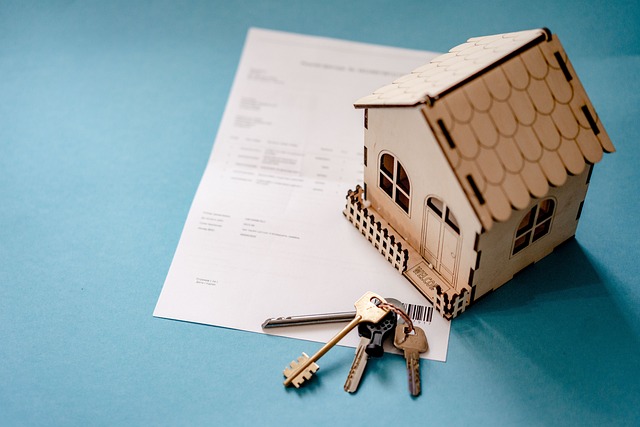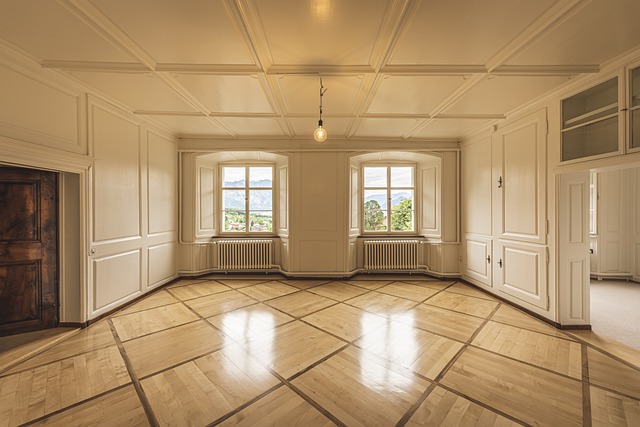Yes, foreigners can buy property in Singapore, but they are subject to specific regulations designed to balance market dynamics and protect local interests. Under the Residential Property Act, corporations and certain non-tax resident individuals may purchase properties within designated areas, such as those under the Approved Outline Plan (AOP) or the Government Land Sales (GLS) Confirmed List. For individual foreign nationals, purchasing resale condominium units in designated areas is allowed, with the need to obtain approval from the Singapore Land Authority (SLA). This process involves stringent checks and ensures that all transactions comply with Singapore's property acquisition laws. The market is carefully regulated, particularly for landed properties, which are largely reserved for Singaporeans and permanent residents. By adhering to these regulations, foreign investors can participate in Singapore's real estate market while contributing to the country's economic growth and housing sector stability.
Singapore’s property market presents a unique blend of opportunities and regulations for foreign investors. This article delves into the legal framework that governs property ownership for foreigners in Singapore, offering clarity on what is permissible within its shores. We explore the historical context of these regulations, the types of properties accessible to foreign buyers, and the key legislation, including The Residential Property Act and Land Acquisition and Sales Act (LASA). Understanding the qualification criteria and application process for purchasing property as a non-resident is essential, as are the conditions and restrictions that come with foreign ownership. This comprehensive guide also examines the impact of these regulations on foreign investors, the role of the Singapore Land Authority (SLA), and the tax implications for foreign property owners, such as the Additional Buyer’s Stamp Duty (ABSD) and property tax obligations. It provides insights into the legal rights and protections afforded to foreign property owners, the process of selling property, recent changes in legislation, and compares Singapore’s market with other Asian real estate markets. Additionally, we offer strategies for navigating this complex landscape, expert insights, and legal advice tailored for prospective foreign buyers. This article is a critical resource for anyone considering investing in Singapore’s real estate sector.
- Overview of Property Ownership for Foreigners in Singapore
- Historical Context of Foreign Property Ownership
- Types of Properties Available to Foreign Buyers
- Key Legislation Governing Property Purchases by Foreigners
- – The Residential Property Act
- – Land Acquisition and Sales Act (LASA)
- Qualification Criteria for Foreigners Buying Property
- The Application Process for Foreigners Seeking to Buy Property
Overview of Property Ownership for Foreigners in Singapore

Under the provisions of the Singapore Land Authority, foreign individuals are permitted to acquire property in Singapore under certain conditions. As of the knowledge cutoff date, Singapore law differentiates between landed properties and apartments within condominiums for foreign ownership. Foreigners can own apartments in condominiums without restriction, as these are considered a form of statutory residential property. On the other hand, purchasing landed properties such as houses, bungalows, or shophouses necessitates approval from the Land Authority, which is typically granted if the property is for self-occupancy and the foreign buyer meets specific criteria, including but not limited to financial stability and contribution to economic growth. The regulations are designed to ensure a balanced property market where both local citizens and qualified foreigners can invest in real estate while maintaining the integrity of Singapore’s housing policies.
To navigate the waters of foreign property purchase in Singapore, it is crucial to engage with a reputable real estate agent or legal expert who is well-versed in the latest guidelines and approvals required. The process involves submitting an application for approval to the Singapore Land Authority, and it is only after receiving this approval that a foreigner can proceed with the purchase. It’s also important for potential buyers to be aware of the tax implications associated with owning property in Singapore, including the Additional Buyers’ Stamp Duty (ABSD) and the Total Debt Servicing Ratio (TDSR) framework, which governs the amount a buyer can borrow for a mortgage. These regulations are subject to change, so staying informed about the latest legal guidelines is key for foreign investors considering property acquisition in Singapore.
Historical Context of Foreign Property Ownership

Singapore’s stance on foreign property ownership has evolved significantly since its independence in 1965. Initially, the country had strict regulations to prevent large-scale land acquisitions by foreign entities, aiming to protect local interests and ensure a stable supply of housing for its citizens. Over the years, however, these policies have been liberalized in certain sectors, reflecting Singapore’s shift towards global integration and its position as a financial hub.
The legal framework governing foreign property ownership in Singapore has undergone several iterations. In the 1980s, the government allowed foreigners to purchase condominium units but with limitations. This was part of an effort to promote the real estate market and attract foreign investment. Subsequent changes have expanded these privileges, allowing foreigners to buy apartments in certain areas without prior approval. However, it’s crucial for potential buyers to stay informed about the latest regulations, as they can change based on Singapore’s economic strategies and housing policies. Can Foreigners Buy Property In Singapore? Yes, but within the confines of the current legal guidelines that distinguish between different types of properties and encourage foreign investment while maintaining a balance in favor of Singaporean citizens. Understanding the historical context provides insight into the evolving relationship between foreign property ownership and Singapore’s economic development strategies.
Types of Properties Available to Foreign Buyers

Can foreigners buy property in Singapore? Yes, they can, but with certain restrictions designed to safeguard the local housing market and the interests of Singaporean citizens. As of the current regulations, foreigners are allowed to purchase properties within specific categories without obtaining a land ownership license. These include residential properties like condominiums and private apartments, which are popular among expatriates and foreign investors due to their prime locations and high-end amenities. Additionally, foreign buyers have access to executive condominiums (ECs), which are a hybrid of public and private housing and cater to the middle-income group. These properties are particularly attractive as they offer a mix of benefits from both sectors, including the potential for subsidies on the lease and eligibility for CPF (Central Provident Fund) housing grants during the first five years of purchase.
Moreover, foreign entities such as companies can also invest in commercial properties like offices, retail spaces, and industrial buildings without restriction. These entities might include those setting up regional headquarters, looking for a base for their operations within Asia. It’s important to note that the rules regarding property ownership by foreigners are subject to change, so potential buyers should consult the latest guidelines from the Singaporean government or engage with real estate professionals who can provide accurate and up-to-date information. Understanding these regulations is crucial for foreign investors interested in Can Foreigners Buy Property In Singapore, as it ensures compliance and informed decision-making within the vibrant property market of this dynamic city-state.
Key Legislation Governing Property Purchases by Foreigners

In Singapore, foreigners are permitted to purchase properties with certain restrictions, as outlined by the country’s legal framework. The key legislation governing property purchases by foreigners is primarily encapsulated in the Reserve Bank of Singapore’s (MAS) regulations. Under the Singapore Land Authority Act and the Strata Titles Boards Act, foreigners are categorized based on their nationality or residency status. Generally, under the Area-Specific Limitation Scheme, foreigners can buy apartments in non-restricted housing estates without restrictions. However, in restricted areas such as Sentosa Cove or properties within the Restricted Residential Areas defined by MAS, foreign ownership is capped at 60% of the total units in a development to ensure a majority Singaporean ownership. Additionally, foreigners are barred from purchasing landed property such as terraced houses, semi-detached houses, and bungalows throughout Singapore. These regulations are designed to maintain a balanced property market and safeguard local interests. It is important for potential foreign investors to stay informed about the evolving legislative landscape, as the government may update these guidelines periodically to reflect economic conditions and housing policies. Thus, understanding the current legislation and its implications is crucial for foreigners interested in investing in Singapore’s property market.
– The Residential Property Act

Under the Residential Property Act, foreigners are permitted to purchase residential property in Singapore with some qualifications. This legislative framework is designed to ensure a controlled and sustainable entry of foreign capital into the local property market. The Act stipulates that only certain categories of foreign entities can own residential property here; primarily, these include corporations and persons who are not tax residents of Singapore. For individual foreigners looking to invest, they must purchase properties under the Approved Outline Plan (AOP) or within the Confirmed List of the Government Land Sales (GLS). This regulatory approach is intended to safeguard the interests of local residents and maintain the affordability and accessibility of housing for Singaporeans. Additionally, foreigners are barred from purchasing landed properties, which includes terraced houses, semi-detached houses, and bungalows, to prioritize these as exclusive residential options for Singapore citizens and permanent residents. The Act also outlines specific conditions under which foreign individuals can acquire certain types of non-landed residential property, such as condominiums, ensuring that the real estate market remains diverse and robust, with a balanced mix of local and foreign ownership.
The rules governing foreign ownership of residential property in Singapore are clear and strictly enforced to maintain the stability of the housing market. The authorities monitor transactions closely to ensure compliance with the law. Foreigners interested in buying property must engage a licensed real estate salesperson or property agent who is well-versed with the current regulations. This due diligence helps maintain transparency and fairness within the property sector, guaranteeing that both local and foreign investors are on equal footing when navigating the Singaporean property landscape. The Residential Property Act thus plays a pivotal role in shaping the demographic composition of homeowners in Singapore while promoting sustainable development within its urban planning framework.
– Land Acquisition and Sales Act (LASA)

Under the Land Acquisition and Sales Act (LASA) in Singapore, the rules regarding foreign property ownership are distinct from those applying to local residents. As of the knowledge cutoff date, foreigners are permitted to purchase properties within certain areas of Singapore, which include the Residential Area Programme (RAP) and Outside Central Business District (CBD). These regions are designated to cater to a diverse range of needs, allowing foreigners to contribute to the vibrancy of these areas. The Act sets out clear guidelines on what types of properties foreigners can buy, ensuring that they do not purchase land or properties in restricted areas where such ownership is reserved for Singapore citizens and permanent residents. This policy is designed to safeguard the interests of local residents and maintain a stable property market within the country. Foreign investors interested in purchasing property in Singapore must navigate these regulations carefully, ensuring compliance with the laws to secure their investment in the Lion City’s real estate landscape. It is advisable for potential foreign buyers to consult with real estate professionals or legal experts who are well-versed in the current property legislation to make informed decisions.
Qualification Criteria for Foreigners Buying Property

Foreign nationals interested in acquiring property in Singapore are subject to specific legal guidelines that govern their purchases. As per the current regulations, foreigners are permitted to buy properties within certain areas of Singapore, primarily outside of the Land and Buildings (Lands) Act. To qualify for property ownership, foreigners must ensure they are not a corporation or an entity defined as such under the Companies Act or Singaporean law. For individual foreigners, the property must be for their own use and cannot be for investment purposes. It is crucial to note that even within the eligible areas, foreigners are restricted to purchasing resale condominium units only; new condominium units are off-limits due to the Conditional Sales Control Act. Foreigners looking to purchase properties in Singapore should consult with real estate professionals or legal experts who can guide them through the application process for the Approval of Sale to Foreigners, which is mandatory for such transactions. This process ensures that the sale aligns with the regulations set forth by the Singapore Land Authority (SLA). Understanding these qualification criteria is essential for foreigners seeking to invest in or reside within Singapore’s property market, as it helps avoid any legal complications associated with unauthorized purchases.
The Application Process for Foreigners Seeking to Buy Property

Foreign individuals interested in acquiring property in Singapore must navigate a set of regulations designed to safeguard local interests while allowing for some foreign investment. The application process for foreigners seeking to buy property in Singapore is structured to ensure transparency and compliance with the country’s land ownership laws. Prospective buyers are required to apply for the Approval of Sale (AS) to the Singapore Land Authority (SLA). This approval is necessary for most forms of residential properties, excluding those in specific areas designated for foreign purchase. The AS application involves submitting detailed particulars of the sale and purchase agreement, along with proof of the foreign buyer’s identity and financial status. Once the SLA approves the sale, the transaction can proceed under the oversight of the Core Central Region (CCR) or outside of it, where foreign ownership is permitted and even encouraged to foster economic growth. The process underscores Singapore’s commitment to maintaining a controlled and regulated property market accessible to eligible foreign investors.
